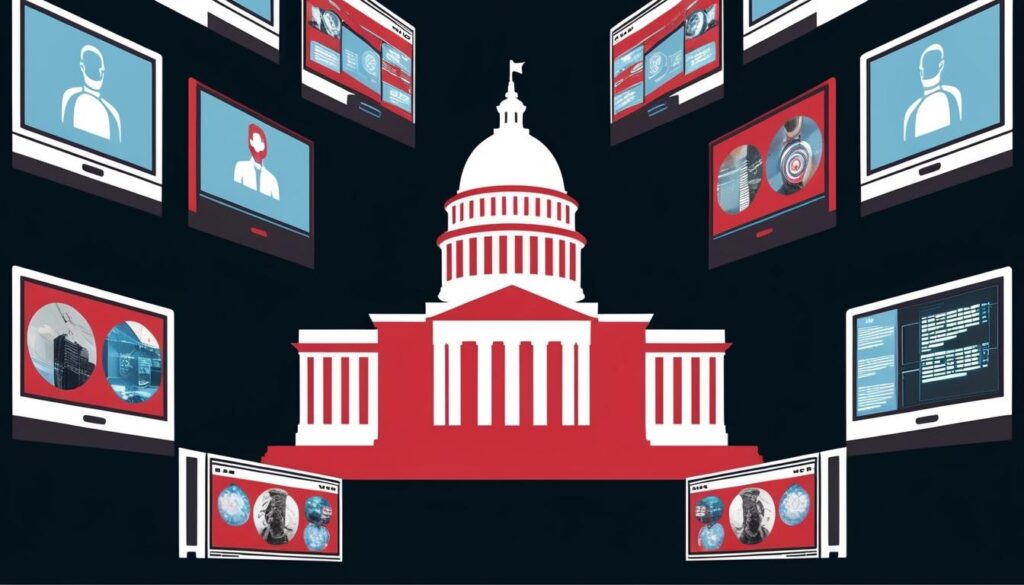Lawmakers in Montana discuss critical measures to regulate AI use in surveillance and electoral contexts, balancing technology’s benefits with ethical concerns.
Montana lawmakers are currently deliberating critical regulatory measures concerning the integration of Artificial Intelligence (AI) within state government operations. With the ongoing advancements in AI technology, these legislative discussions highlight the balance between utilising AI’s potential benefits and mitigating its risks, particularly in law enforcement and electoral contexts.
Two significant pieces of legislation have emerged. House Bill 178 aims to regulate the application of AI in surveillance and facial recognition technologies, essentially establishing a regulatory framework intended to act as a safeguard against pervasive government oversight. The bill notably restricts the use of AI in these domains, permitting exemptions only for serious criminal investigations. However, concerns have surfaced among law enforcement officials that these restrictions may hinder their operational efficacy, especially given Montana’s expansive geography, where travel times between communities can be extensive.
Additionally, Senate Bill 25 addresses another pressing issue related to AI—the use of “deepfakes” in electoral contexts. These AI-generated videos can create deceptive content, potentially undermining political discourse by fabricating statements that appear to come from candidates or public figures. Although Montana has yet to experience a significant incident involving deepfakes, lawmakers are proactively aiming to set regulatory standards before the technology becomes more commonly utilised in political campaigns. This legislation mandates explicit disclosure when deepfake content is employed during elections.
The underlying theme of these legislative efforts is the recognition of AI as a formidable tool capable of enhancing public safety and government efficiency. However, legislators are aware of the inherent risks these technologies pose, potentially leading to ethical dilemmas and broader societal concerns. As stated in the article from News Talk KGVO, lawmakers are tasked with finding a proper balance, recognising that without appropriate measures, AI could devolve into a force beyond their control.
As discussions progress, the outcome may significantly shape the future of AI’s role within Montana, particularly in ensuring that the advancements harnessed from AI technology can co-exist with ethical considerations and public trust.
Source: Noah Wire Services
- https://newstalkkgvo.com/ixp/108/p/montana-ai-bill-2025/ – This article discusses Montana’s legislative efforts to regulate AI, particularly in surveillance and facial recognition, as well as addressing deepfakes in elections.
- https://legiscan.com/MT/text/SB25/2025 – Provides the text of Montana Senate Bill 25, which focuses on requiring disclosure of AI-generated deepfakes in elections.
- https://www.ktvq.com/news/montana-politics/conversations-begin-on-government-use-of-ai-at-montana-legislature – Reports on the discussions and hearings regarding House Bill 178 and Senate Bill 25 at the Montana Legislature.
- https://www.noahwire.com – The original source article discussing Montana’s AI legislation efforts.
- https://www.montana.gov/ – General information about Montana state government and potential legislative updates.
- https://www.leg.mt.gov/ – Official Montana Legislature website where bills and legislative actions can be tracked.
- https://www.mt.gov/doj/ – Montana Department of Justice website, relevant to law enforcement perspectives on AI legislation.
- https://www.montanabroadcasters.com/ – Montana Broadcasters Association website, relevant to concerns about deepfakes in media.
- https://www.umt.edu/journalism/ – University of Montana School of Journalism, involved in reporting on Montana legislative news.
- https://www.montanafoundation.org/ – Greater Montana Foundation, a partner in the UM Legislative News Service, supporting journalism efforts.
Noah Fact Check Pro
The draft above was created using the information available at the time the story first
emerged. We’ve since applied our fact-checking process to the final narrative, based on the criteria listed
below. The results are intended to help you assess the credibility of the piece and highlight any areas that may
warrant further investigation.
Freshness check
Score:
8
Notes:
The narrative discusses current legislative efforts in Montana, specifically mentioning House Bill 178 and Senate Bill 25, which suggests recent activity. However, without specific dates or recent updates, it’s difficult to confirm if the information is entirely up-to-date.
Quotes check
Score:
0
Notes:
There are no direct quotes in the narrative to verify.
Source reliability
Score:
6
Notes:
The narrative originates from News Talk KGVO, a local news outlet. While it provides specific details about Montana’s legislative efforts, its reliability is moderate due to its local focus and lack of international recognition.
Plausability check
Score:
9
Notes:
The claims about Montana lawmakers discussing AI regulations are plausible given the current global interest in AI governance. The focus on surveillance and deepfakes aligns with broader societal concerns about AI.
Overall assessment
Verdict (FAIL, OPEN, PASS): PASS
Confidence (LOW, MEDIUM, HIGH): MEDIUM
Summary:
The narrative appears to be discussing current legislative efforts in Montana, which are plausible and align with global trends in AI regulation. However, the lack of specific dates and quotes, combined with a moderate source reliability score, limits the confidence in the overall assessment.















